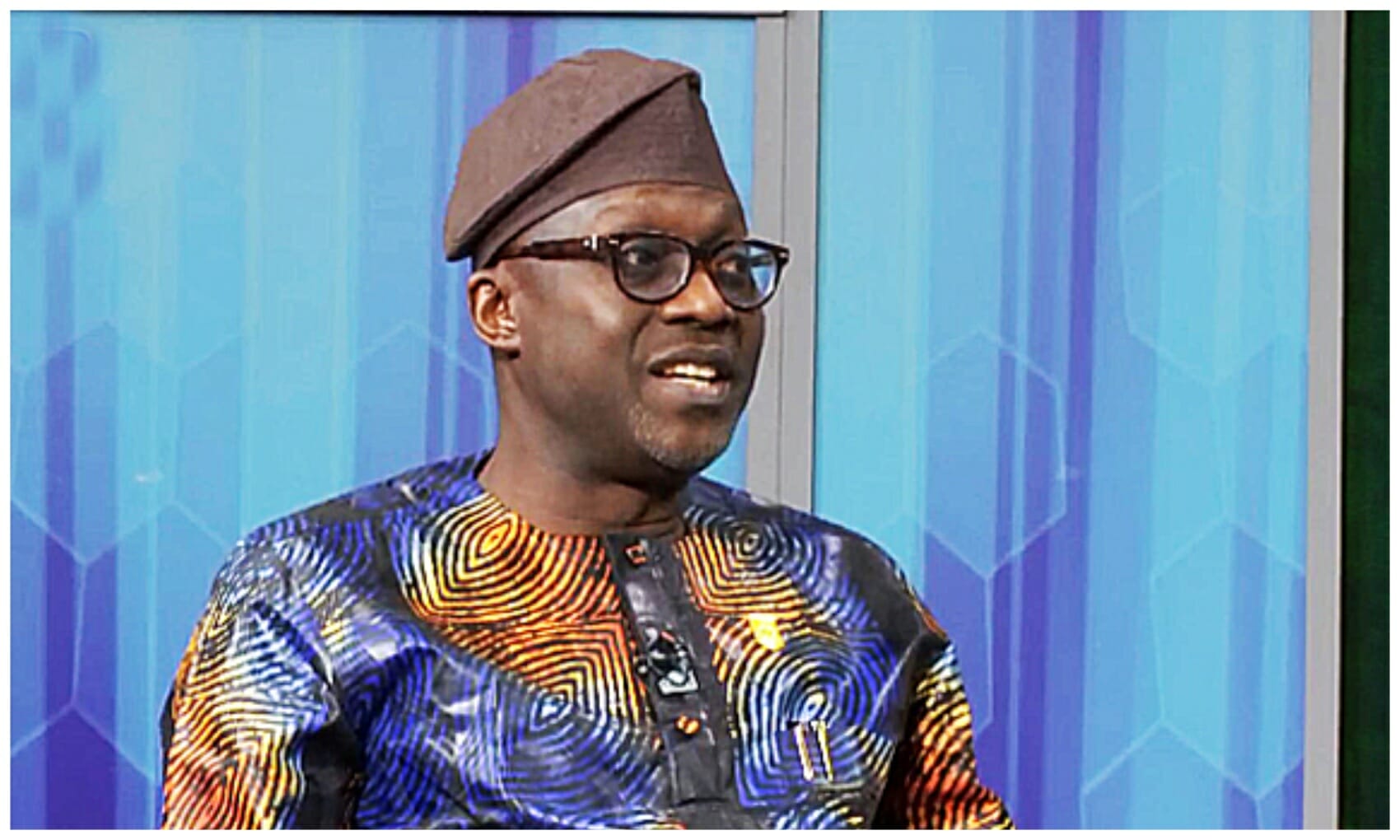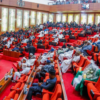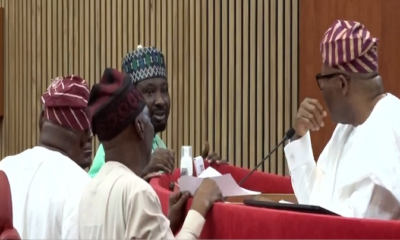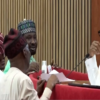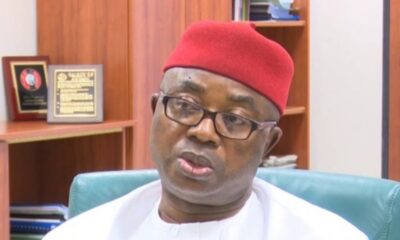Local News
MAN Warns Against Overplaying Nigeria’s Rebasing Gains, Urges Urgent Structural Economic Reforms
The Manufacturers Association of Nigeria (MAN) has called on the federal government not to see the nominal increase of 18.3 per cent year-on-year Gross Domestic Product (GDP) growth recorded in the latest rebasing of Nigeria’s economy as evidence of significant economic progress.
It explained that this is because it might have obscured some of the economy’s deep-rooted challenges as real GDP’s average growth remained weak at 1.95 per cent between 2020 and 2024.
MAN also said the declining performance of the manufacturing sector from 27.65 per cent in the 2010 base year to 21.08 per cent in 2019 as seen from the rebased GDP was a strident call for structural industrial reforms.
These views were expressed by the Director General of MAN, Mr. Segun Ajayi-Kadir, in his response to THISDAY’s questionnaire on the National Bureau of Statistics (NBS) rebasing exercise of the economy.
Ajayi-Kadir pointed out that although the GDP’s rebasing has confirmed that Nigeria’s economy has become statistically larger; it has also made it plain that Nigeria’s economy is neither more productive, nor more industrialised.
He said: “The revised nominal GDP estimate, showing an 18.3 per cent year-on-year increase, is a direct outcome of improved data capture, especially in agriculture, services and informal sector activities. Notwithstanding, MAN strongly cautions against interpreting this nominal expansion as evidence of significant economic progress.
“MAN, therefore, calls on the government to treat the rebased GDP not as a celebration of growth, but as a strident call for structural industrial reforms,” adding that “Nigeria must re-industrialise to achieve inclusive growth, build export capacity, and reduce dependence on primary commodities and informal activities.”
MAN therefore urged the government to prioritise manufacturing policy, financing and infrastructure development because without a strong industrial base, GDP expansion may just become a ‘hollow statistic’ that is not backed by productive transformation.
The director general of MAN said that despite the upward revision, the real GDP growth remains weak, averaging just 1.95 per cent between 2020 and 2024.
“This sluggish real growth shows the underlying fragility of Nigeria’s productive base and the capacity of the economy to deliver sustainable and inclusive development,” he added.
He also expressed MAN’s concern over the declining role of the industrial sector, which the rebased figures have made unmistakably clear.
He said: “Industry’s share of GDP fell from 27.65 per cent in the 2010 base year to 21.08 per cent under the 2019 rebased structure, marking a structural shift away from production toward low-productivity service activities.
“While the rebasing exercise reveals a more diversified economy, it also exposes the underperformance of industry, particularly the manufacturing sector that should be the backbone of Nigeria’s economic transformation.
“Manufacturing is structurally weak, with sub-sectors that should be growth drivers performing below potential, as indicated in the report. Based on the figure released, the average annual growth rate of the manufacturing sector between 2019 and 2024 is negative (-0.76 per cent)
“This means that Nigeria’s manufacturing sector has been shrinking in real terms over the past five years.”
According to MAN, the upward revision of Nigeria’s GDP to $243 billion could offer a lift in investors’ confidence and improve headline macroeconomic ratios such as the debt-to-GDP ratio.
It, however, noted that confidence in the economy is anchored not just on size but also on structural resilience, depth of industrial capacity, and productivity growth.
“In this regard, we need to refocus on the development of the real and high-impact driven sector. More worrisome is the underperformance of the manufacturing sector whose contribution to GDP remains low and increasingly volatile.
“This scenario speaks loudly for sustained industry-centric policies, which has already been exemplified by the Industrial Revolution Working Group, infrastructure investments, and improved access to long-term finance to revitalise the industrial sector. This is the way for the growth in GDP to alleviate poverty, create jobs, and contribute to macroeconomic stability,” it added.
Also, responding to the result of the latest GDP rebasing exercise, the Director General of Nigeria Employers’ Consultative Association (NECA), Mr. Adewale-Smatt Oyerinde, said that the rebased GDP highlighted Nigeria’s potential that would require reforms that reflect the country’s current economic landscape to unlock.
Oyerinde said: “We need to take a coordinated approach. This means enhancing productivity across sectors, empowering SMEs, improving infrastructure, and implementing fiscal and monetary policies based on solid evidence.
“The rebased GDP highlights our potential, but unlocking that potential will require reforms that reflect our current economic landscape.”
He also urged the federal government and relevant agencies to leverage this new data to reshape industrial policy, create job-focused initiatives, and align incentives with sectors that are genuinely growing.
Oyerinde remarked that this is not just about boosting numbers but a rallying cry for action. “So, we need to cultivate a diverse, job-rich economy grounded in accurate data, proactive governance, and development led by the private sector,” he said.
NECA also commended the NBS for the recently released rebased GDP, describing it as a timely and essential move towards gaining clearer insights into the economy and boosting investment confidence.
Oyerinde pointed out that the new rebased GDP, now estimated at $243 billion and reflecting an 18.3 per cent increase from the previous year, offers a more reliable, evidence-based perspective on the actual size and structure of Nigeria’s economy.
He also said that it highlighted emerging and often overlooked sectors like real estate, telecommunications, and trade, while also showcasing the vital role of the informal sector.
Oyerinde stressed that this rebasing, which shifts the base year from 2010 to 2019, goes beyond just numbers; it serves as a crucial tool for strategic economic planning, fiscal benchmarking, and performance assessment.
“This change is set to positively impact key macroeconomic indicators such as debt-to-GDP, tax-to-GDP, and investment-to-GDP ratios, providing both policymakers and the private sector with a solid foundation for making informed decisions,” he said.
He also noted that the shift in economic activity rankings, particularly with real estate surpassing crude oil in its contribution, served as a strong reminder of the need for intentional economic diversification.
Oyerinde observed that for too long, Nigeria’s economic growth has been viewed through the narrow lens of extractive industries, overlooking the vibrant growth of service-oriented and urban-based sectors.
He also emphasised that having clearer and more current data would help Nigeria to boost its credibility and appeal on the global economic stage.
“The rebased GDP brings transparency and aligns with international standards, which is crucial for both portfolio and direct investors who seek reliable data before putting their money on the line,” he said.
The director general of NECA also said that the $1 trillion GDP projection in 2030 is within reach, but would require a coordinated approach to realise.

